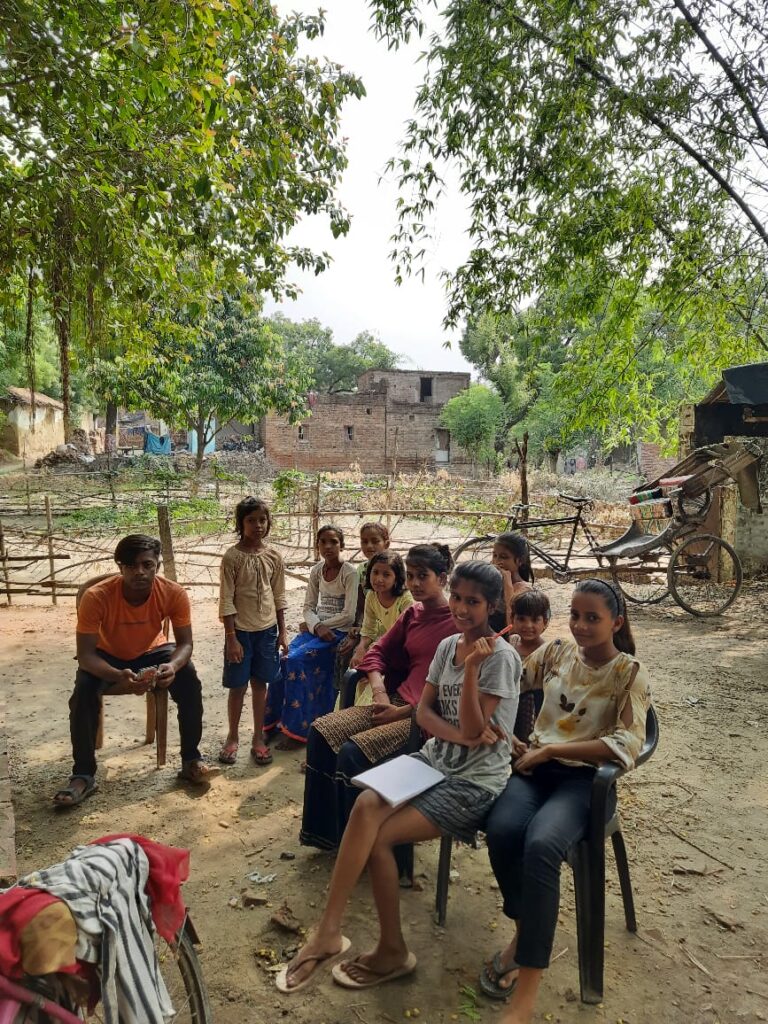Giving women access to the internet through ASPi-devices
Women accessing internet through ASPi-devices allows them to build female communities in which they can share knowledge and learn together.


Enabling girls and women to navigate the internet for social, educational, and informative use has several benefits. Not only can it strengthen their confidence, but it can also provide them with more equal opportunities and roles within patriarchal societies. 48percent.org has partnered with Servelots near Bangalore, India, to support their project. It aims to connect young girls to the internet through “ASPi”-devices (aspiration networking devices). This blogpost gives an insight into the project and the work that is being done.
Can you shortly explain your project?
Our group has been active in a number of villages that do not have internet access. We are also traveling and setting up wifi-mesh networks in mostly tribal and remote areas, as well as in urban slums. Among these we seek out segments that are represented by young women and girls who will not get internet access for skill training, marketing, or for education due to patriarchal contexts. Male members do not allow smartphone use or let the women own smartphones. The area does not have computers with Internet access in their schools. We provide small computers called ASPi for groups of girls, which can be collectively used in addition to serving as an internet node.
Where is your project located, and who does your work help?
Our main work, that we call Iruway Rural Research Lab of Janastu/Servelots, is located 2 hours away from Bangalore, India. The area is a valley with 5 villages with some of them being historically oppressed communities. As part of the Lab activity, our goal is to experiment with tools and hardware deployment in the area. After testing them, we release them as open source. Replicability is what we desire. We work with a number of collaborators and partners who also help with development, replication, and deployment.
What will the girls who have access to these ASPI-devices learn?
Learning depends on the user group. A good number of young women are first time users of a computer, a mouse, and a browser. We also have YouTube on the desktop. Additionally, we made folders that are automatically shared across a network of similar users, so content sharing can happen with other similar ASPi users. We use these folders to update learning material for their needs. Mostly playful learning material for kids and specific courses (such as designing clothes or video making) for young women. We initiate browsing and searching when our teams visit them.
How does this project affect the girls’ future?
First thing we see happen is that they become confident. We also notice that they find video content about health and all. Most of the time they entertain themselves and their group with music videos of popular films and TV programs. They sometimes find contact details and phone numbers of government officials and businesses. This is useful when their brothers and parents need to contact them. Some groups are more dedicated to learning based on school curriculum. During Covid-19, the main activity was to watch the videos that their schools had recommended. These would be viewed in a group, and their parents would often watch parts of it and ask questions. It is common that their parents lack education, and are therefore interested in what their children are learning.
Do you have plans for the future to help more people with similar projects?
Yes! As we work on expanding the tools that are developed for communities like these, we want to deploy storytelling tools. We would like to enable tools that simplify ASPi devices and smart phones to bring stories from the communities. Community expressions can be the foundation for sharing aspirations, connecting with others who speak similar languages, and to form support groups. In turn, we foresee that many of these young women will have similar knowledge to the men around them. They will then be able to support them, whereby the men start respecting their abilities as well as trusting their women with the Internet.
If you want to know more about the specifics and functionalities of APSi-devices, you can click the following link. It takes you to Servelots open source platform, Janatsu, and their info-page on ASPi’s.